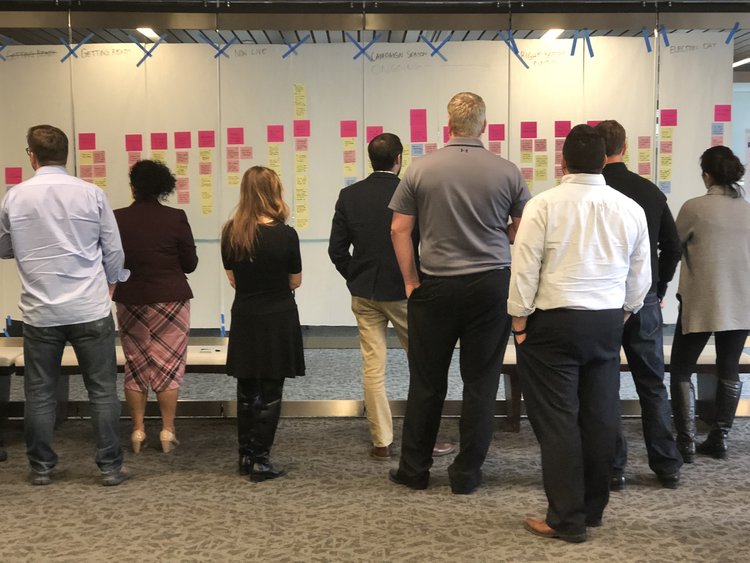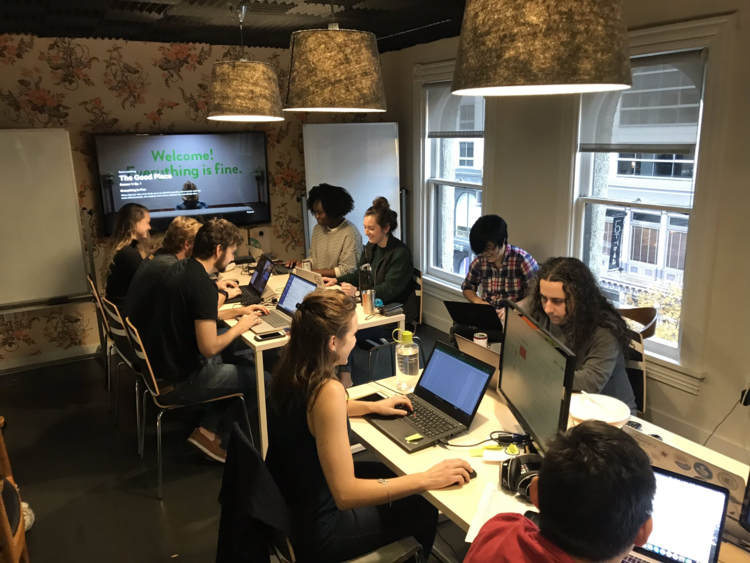CTCL at 4 years
Here at CTCL, we care a lot about voting and elections. We want election officials to be supported with training and tools so they can run a voting process that is trustworthy and inclusive. And we want the public to be able to easily find information so they can make decisions about how to participate in our democracy.
As a small but mighty team, we’ve been working towards these goals since 2015. So, as CTCL turns 4 years old this year, we’re looking back on 2018 and sharing some achievements that have moved us closer to our vision.
Telling our story
We recognize that our story and our ideas are valuable — and who better to share them than us. Our executive director, Tiana Epps-Johnson, was invited to the TED stage this past November. She talked about what’s needed to bring the U.S. voting system into the 21st century and CTCL’s approach to make it happen.
Working in collaboration with others
We know that collaboration is fundamental to achieving ambitious goals. In January, our civic data team hosted its 3rd annual ballot data convening where we brought together 38 individuals from 25 organizations who use ballot data to drive civic participation. Topics of conversation included opportunities and challenges of working together as a field; new systems and standards for making collaboration possible; data and political geography availability; and how organizations define and measure their work’s impact.
In May, our government services team partnered with the Center for Civic Design to host a workshop on modernizing voter registration.

State and local election officials, a DMV administrator, researchers, and advocates attended the workshop and shared their ideas on how local election officials might best manage the effects of policy changes like Automatic Voter Registration. Using the research from this workshop, combined with interviews from the field, we produced the Voter Registration Modernization Guide in the Election Toolkit.
Building on successful programs
In 2018, we doubled-down and focused on building and growing some of our core programs at CTCL. For example, the Election Toolkit continued to be a valuable resource for the election administration community. It’s a beautiful, accessible website where election officials can find free and low-cost tools to help promote civic engagement and make voting easier. Launched in June 2016 with 11 tools, in 2018 it grew to a total of 19 tools and over 40,000 unique site visitors.
After debuting our online training series in the summer of 2017, we expanded the menu of professional development courses for election officials in 2018. We teamed up with the Center for Democracy and Technology to build and deliver our most successful series to date, the cybersecurity series. Together, we trained over 300 election officials who serve nearly 50 million voting age citizens. Attendees learned cybersecurity terminology, the National Institute of Standards and Technology cybersecurity framework, and cybersecurity communication best practices so they can administer more secure and resilient elections across the country.
In November, CTCL’s Ballot Information Project once again powered tools and services that helped millions of people across the country answer the question, “What’s on my ballot?”. Our partnerships with search engines, social media sites, and civic engagement organizations ensure that voters can find the information they need in the places that they already look for it. We’re excited to continue expanding our ballot information offerings in 2019 — stay tuned!

CTCL’s civic data isn’t just for civic engagement in November, however. The Governance Project is a nationwide dataset of our federal, state, and local elected officials that has been maintained by our civic data team since 2013. This data is made freely available via the Google Civic Information API and powers tools that help connect communities to their government year-round. Expanding on these datasets, the Reflective Democracy Campaign highlighted that more women and people of color ran for office in 2018 than previous years, better reflecting the people they represent.
Continuing to grow and develop as an organization
We had 5 full-time staff at CTCL’s first official staff retreat in 2016. Over time we’ve grown to 15 full-time staff in 2018! Our newest team members Sondra Grover, Keegan Hughes, and Josh Simon Goldman bring exceptional talent and energy to the operations and government services teams.
We also expanded our Advisory Committee of election experts from 8 to 10 members, including our most recent recruits Indra Arriaga from Alaska, Kim A. Barton from Alachua County, Florida, Norelys Consuegra from Rhode Island, and Maurice Turner from the Center for Democracy and Technology.
In addition, our executive director, Tiana Epps-Johnson, was chosen to join the inaugural class of Obama Fellows in 2018. She’s using this opportunity to learn with her cohort, cultivate leadership skills, and guide our organization to the next level.
If you can believe it, by this time next year it will be 2020. By then, we’ll see a larger professional network of election officials who are committed to administering more secure and inclusive elections and stronger partnerships with organizations that will engage and inform millions of people in the U.S. about their elected representatives.
And while the hours and weeks of work at CTCL all add up to years (and these annual blog posts), it’s really about adding up to something bigger — a system that invites more people into the voting process and makes it easier for them to stay there.
Thanks for supporting the Center for Technology and Civic Life.